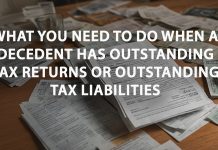Medical marijuana is now legal in 29 states (including California) plus the District Of Columbia. However, under Federal law marijuana is designated as a Schedule I controlled substance and therefore is illegal under Federal law.
Federal Law
21 U.S.C. § 812 known as the Federal Controlled Substances Act (“CSA”) classifies marijuana as a Schedule 1 substance with a high potential for abuse, no currently accepted medical use in treatment, and lack of accepted safety for use under medical supervision.
The federal penalties for possession of any amount of marijuana are as follows:
- First Offense – Misdemeanor involving up to one year of incarceration and $1,000 in fines
- Second Offense – Misdemeanor punishable by 15 days to 2 years behind bars and $2,500 in fines
- Third and subsequent offenses – Misdemeanor or felony punishable by 90 days to 3 years of incarceration and fines of up to $5,000.
The penalties for the sale of marijuana depend on the amount of marijuana you have been accused of selling or attempting to sell:
- Less than 50 kilograms – Felony punishable by up to 5 years in prison and/or up to $250,000 in fines
- 50 to 99 kilograms – Felony punishable by up to 20 years in prison and/or fines of up to $1,000,000
- 100 to 999 kilograms – Felony involving 5 to 40 years incarceration and/or fines of up to $2,000,000
- 1000 kg and up – Felony carrying a sentence of 10 years to life in prison and/or up to $4,000,000 in fines
As for the cultivation of marijuana, the federal authorities punish it on the basis of the number of plants you were caught growing:
- Less than 50 plants – Felony punishable by up to 5 years in prison and/or up to $250,000 in fines
- 50 to 99 plants – Felony punishable by up to 20 years in prison and/or up to $1,000,000 in fines
- 100 to 999 plants – Felony carrying a 5 to 40-year prison sentence and/or fines of up to $5,000,000
- 1,000 plants or more – Felony involving 10 years to life in prison and/or fines of up to $10,000,000
With aggravating factors such as a trafficking activity that results in an injury or death, a sale within 1,000 feet of a school, or a case involving five grams sold to a minor, the above penalties may increase dramatically.
Probation vs. Supervised Release
Probation and Supervised Release are imposed at sentencing. Probation is imposed as a substitute for imprisonment. Supervised Release is imposed in addition to imprisonment. At the Federal level, Probation and Supervised Release are both administered by the U.S. Probation and Pretrial Services System. Federal Probation has existed since 1909. Federal Supervised Release has only existed since 1987, when it replaced federal parole as a means for imposing supervision on individuals that have been released from jail.
The U.S. Probation and Pretrial Services Office interviews and monitors all individuals from pre-sentencing until their period of Probation or Supervised Release is completed. At the pre-sentencing interview the individual will be questioned on what prescriptions or other medication he or she is taking and reminds the individual that the use of illegal drugs and medical marijuana will violate the terms of his or her freedom from incarceration. It does not matter that the state where the individual resides has legalized medical marijuana and the individual is following state law in obtaining and using the marijuana. On January 4, 2018, Attorney General Jeff Sessions announced that in the course of federal prosecutions of people who violate federal law that outlaws marijuana, he will leave it up to the local Federal prosecutors as to what cases should be prosecuted. Likewise, the U.S. Probation and Pretrial Services Offices are following the same stance where they warn individuals that using medical marijuana will violate the terms of their release and they will be reported to the Federal District Court.
What This Means For Individuals Under Probation Or Supervised Release
Unfortunately because medical marijuana is illegal under federal law, medical marijuana patients who are on federal Supervised Release or Federal Probation do not have the right to use their medicine. Violations of conditions of probation or supervised release can result in said revocations being reported to the court and a revocation hearing being held resulting in an individual being put back under custody or other sanctions imposed.
What Should You Do?
Given the greater disparity in treatment between the Federal and California governments you need to protect yourself and preserve your freedom if you have been using marijuana and you are on probation or supervised release. Be proactive and engage an experienced attorney-CPA in your area. Let the tax attorneys of the Law Offices Of Jeffrey B. Kahn, P.C. located in Orange County (Irvine), the Inland Empire (Ontario) and other California locations protect you.








